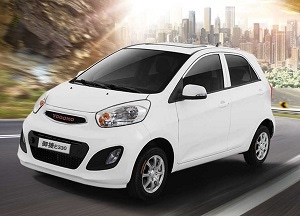Since entering the market in 2000, Kingfa has expanded its customer base globally to 35 OEMs and grown sales to 380,000 tonnes annually.
December 14, 2017

Chinese company Kingfa Sci & Tech. Co. has grown into one of the world’s largest, if not the largest, resin compounder, with compounding capacity of 1.6 million tonnes/year and estimated sales in 2017 of 1.3 million tonnes of compounded material. The company operates 14 production bases, including nine in China, three in India, one in the U.S., and one in Europe. In 2016, the company sold 380,000 tonnes. The sales target for 2017 is 440,000 tonnes.
Andy Chen, Senior Technical Manager at the Auto Materials Business Unit at Kingfa, recently presented an overview of the company’s activities in the auto sector at the 17th Polyolefin Conference in Suzhou, China. Chen noted a definite trend towards the adoption of low-density polypropylene (PP)grades in recent years in order to reduce vehicle mass. Volkswagen, for example, has transitioned from PP compounds with density of 1.02 to ones with density of 0.95, while Mercedes-Benz was made the transition from 1.04 to 0.98. Kingfa offers low-density compound that reportedly do not compromise on physical properties and mold shrinkage, and feature superior scratch resistance, more stable melt flow, and low VOC emissions.
|
Emerging NEV OEMs such as Rayttle and Yogomo should boost Chinese demand for PP compounds. |
|
Also in the lightweighting stakes, Kingfa is employing high melt strength (HMS) PP grades coupled with chemical and physical foaming processes to enable production of parts that are 20-30% lighter. For example, an HMS-PP grade with MFI of more than 40 was molded on a 1300-tonne clamping force injection compression press using an inorganic salt as a foaming agent. While raw material costs are typically 5-10% higher, the parts are typically 20-30% lighter than non-foamed parts, the molding cycle is 20% shorter, and the energy consumption is reduced by 10%. The injection molding machine, meanwhile, is 33% more expensive according to Kingfa, which currently offers five grades for microcellular foam molding. One of its grades, AMP-2040, is slated for use by Nissan Motor, Great Wall Motors, Chang’An and BYD in door panels of models the OEMs plan to introduce in 2018-2019.
Kingfa has also developed soft feel PP grades for auto interiors that do not require coating. Chen says that these grades incorporate polybutylene to realize the soft feel properties, and they also exhibit good scratch resistance and low gloss.
Kingfa has also developed more rigid PP materials that do not require spray coating. One such grade was applied for front and rear door trim components in a Chang’An vehicle and although the material cost was around $4.50/kg versus $2.70/kg for a conventional 20% talc-filled compound, zero painting cost coupled with a higher part rejection rate associated with the coating process meant the non-sprayed part cost was more than 25% lower.
Kingfa also sees massive opportunities for PP in particular with increased production of neighborhood electric vehicles (NEVs) in China. “There is potential for 10% market growth for olefin-based materials under the hood because the internal working condition of the vehicle has changed dramatically,” says Chen. Low-speed car makers (<50 kmh) such as Hongxing Auto, Rayttle, Levdeo, and Yogomo are particularly promising given 2017 is reportedly a watershed in NEV production in China with new models being released and commercial production starting up over the next three years. Opportunities identified by Kingfa in the NEV sector include door frames and panels, and hoods.
About the Author(s)
You May Also Like






